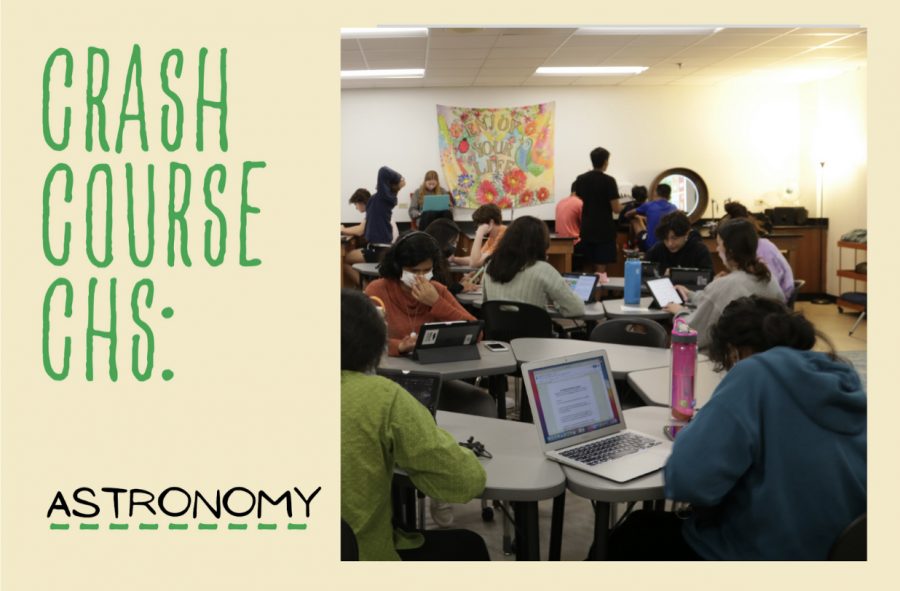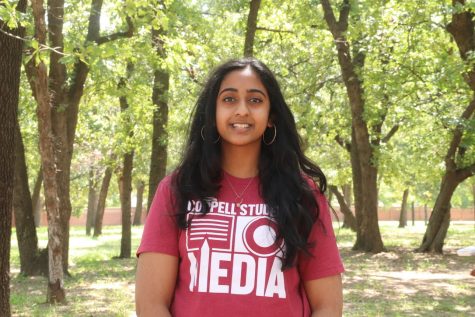Crash Course CHS: astronomy
Coppell High School astronomy teacher Angela Barnes’s sixth period class researches topics for the global goals project. Honors Astronomy is a level three science elective course with prerequisites of biology, chemistry and geometry.
November 3, 2021
Crash Course CHS is a Sidekick series in which student life editor Anette Varghese answers questions about CHS courses. In this edition, Varghese talks to CHS astronomy teacher Angela Barnes.
How is the class structured?
The class is structured chronologically. We start with prehistoric astronomy, where we look at the night sky without any technology or light pollution. Then, we move into classical, renaissance and then modern astronomy.
Are labs and projects involved?
Yes, we do projects throughout the year. We have already had a star party this school year. We also have our global goals project coming up.
What is the hardest part of the class?
I do not think the class is that hard. The content is not hard. What students struggle with is meeting deadlines, and taking care of their responsibilities. I will leave it to them rather than holding their hand through the entire course.
What is the classroom environment like?
Collaborative. The classroom has a lot of noise, lots of group projects and people together working. There is some independent work, but the environment is usually noisy and fun. And very chill.
Is this course considered a science or an elective?
The course is a science elective. Ideally the class is for seniors, after they take biology, chemistry and physics. This is a science elective that ties [those sciences] together as we look at the cosmos.
What is the difference between astrology and astronomy?
Astronomy is the study of the night sky. Astrology is the study of zodiac constellations and how they affect your life depending on when you were born. We do touch on astrology.
How is math involved?
We do not do a lot of math in this course. It is more big picture concepts and understanding main ideas. We do talk about Kepler’s Laws, and occasionally some practice some mathematics. Astronomy is not a math-based course.
How does this course benefit students?
You will leave this course with a very good idea of how the cosmos work, your place in it and how you can make the world a better place.
Is there anything else you’d like to add?
I would like students to know that astronomy is a class with a lot of choice. They get to choose which book they read for a book study; they get to choose which global goal they want to focus on and they get to choose which historical figure they want to celebrate as a part of our minorities in astronomy project. The course offers flexible learning opportunities. They can go to the planetarium and learn or they can eat a vegan burger to learn how to lessen their impact on the planet. I take the class and try to add as many layers as possible, so students can explore what interests them the most. It is a great class for your senior year.
Follow Anette (@AnetteVarghese) and @CHSCampusNews on Twitter.










